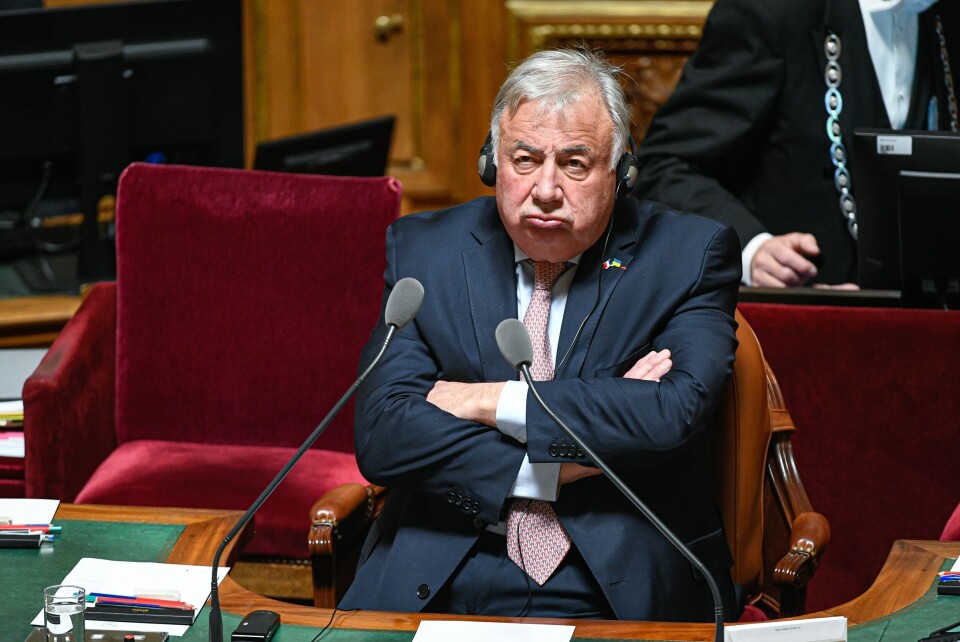-
Strikes and protests in January 2026 and how you may be affected
Doctors, rail staff, and farmers are all taking action
-
Good news as lower electricity bills confirmed in France
The change is not a ‘revolution’ but will give some purchasing power back, minister says
-
French ski resorts report excellent Christmas despite less snow than last year
Bookings are up and non-snow related activities are also on the rise
Right maintains majority at the French Senate after new election
The makeup of France’s second parliamentary chamber continues to be a clear Right and Left divide - a division President Macron was aiming to end

The French Right has kept its majority at the Senate after Sunday’s sénatoriales elections, in which nearly half the seats were up for renewal, meaning the status quo continues as experts had predicted.
Only marginal changes have been made with parties losing or gaining only a handful of senators. The vast majority (80%) of the 170 senators were reelected.
The senate, often referred to as the ‘Palais de Luxembourg’ due to its location in Paris, remains a political institution structured around solid political composites from the right, the centre and the left.
The Right won 151 senators, the Centre 77 and the Left 82, according to first results compiled by Le Monde on Monday morning (September 25), leaving little room for other extreme or ecological forces.
Read more: Why Sunday’s French senator elections carry big political stakes
Les Républicains (LR) remains the major political force with 139 senators, losing six senators in the process as they renewed only 59 of their 65 seats at play.
The socialist party remains the second strongest force with 64 senators, approaching 100 seats when the ecologists (15 seats) and the Communist party (17 seats) are included.
Far-right party Rassemblement national (RN) makes a return with three senators. It is, however, weaker than expected and the party is seven senators short of forming an autonomous political force within the Senate.
President Emmanuel Macron’s party Renaissance lost four senators.
“The renewal of half of senators confirms the Senate majority for the Right and the Centre, a testimony of its territorial presence across France,” said Gérard Larcher, its president and a LR member, in a press release.
Mr Larcher was reelected in his home department Yvelines for a sixth six-year term.
Strong left-right divide
The territorial presence reference is an indirect jab at Renaissance, RN and the far-left La France Insoumise (LFI).
While these three parties are often the most vocal forces in French media, always prompt to jump in on polemics, they represent some of the weakest political forces at the Senate.
The institution remains strongly divided on a right/left spectrum while Mr Macron was elected in 2017 on a campaign looking to transform politics and end that division.
Read more: Why does ‘left-wing’ France vote for election candidates on the Right?
Renaissance lost its only remaining senators in Paris, another blow that shows the difficulty the party has to consolidate outside of Paris and France’s biggest cities.
“We will be at least 20 [senators],” said Renaissance senate president François Patriat to FranceInfo.
The Rassemblement National returns to the Senate (its only senators had defected to Eric Zemmour’s Reconquête! Party in 2020) gaining three senators, one more than it had in 2014. This is far off its presence at the Assemblée nationale with 88 MPs.
La France Insoumise did not win any seats.
“When you treat the Senate like a secondary chamber of petty importance, reality eventually hits political intentions,” political expert Jean Petaux told The Connexion, answering questions about his predictions for LFI before the sénatoriales were held.
Read also
'Preferendum': a buzz word, not a real concept, says French law expert
Why this Sunday’s French senator elections carry big political stakes
























